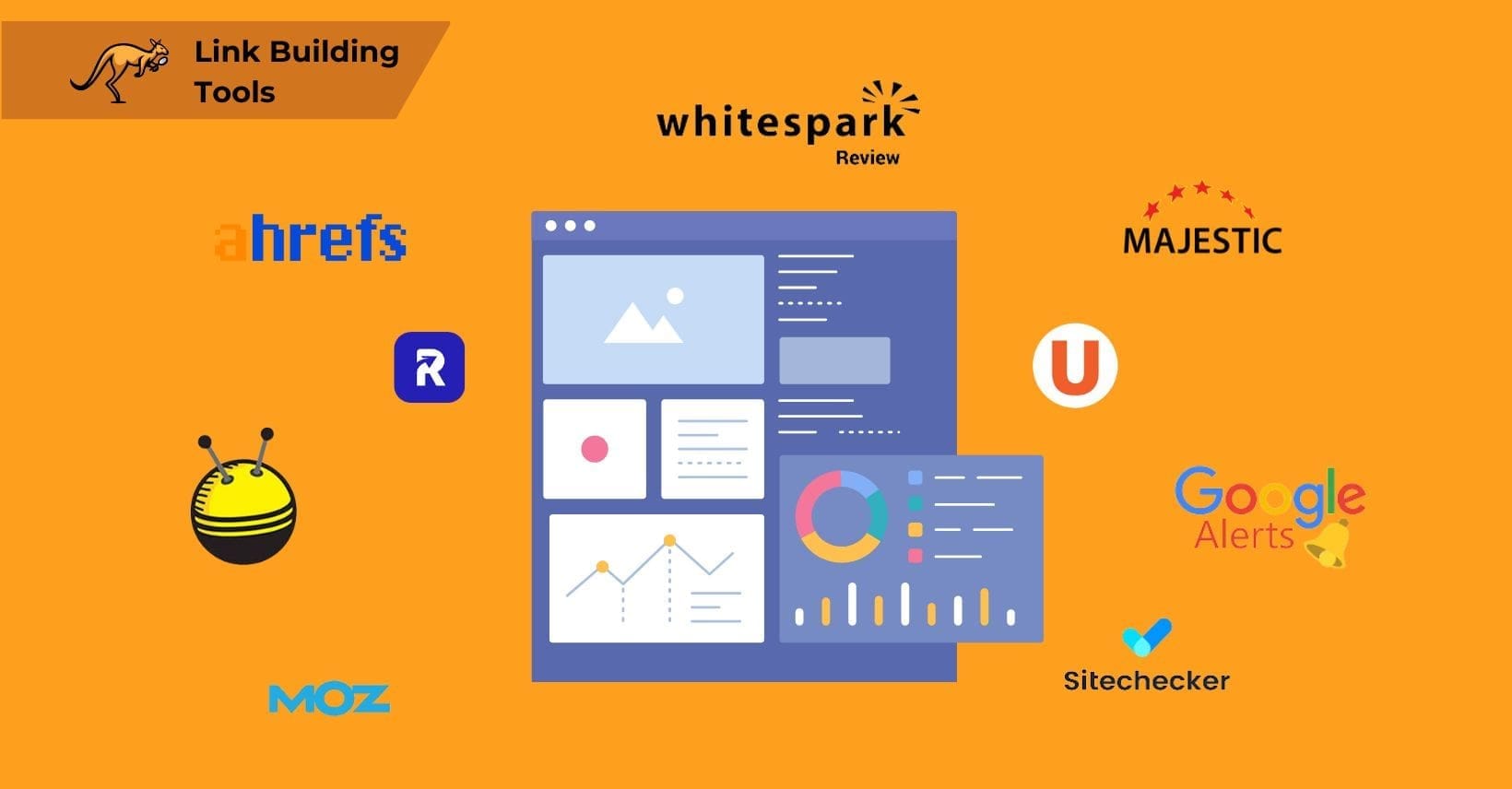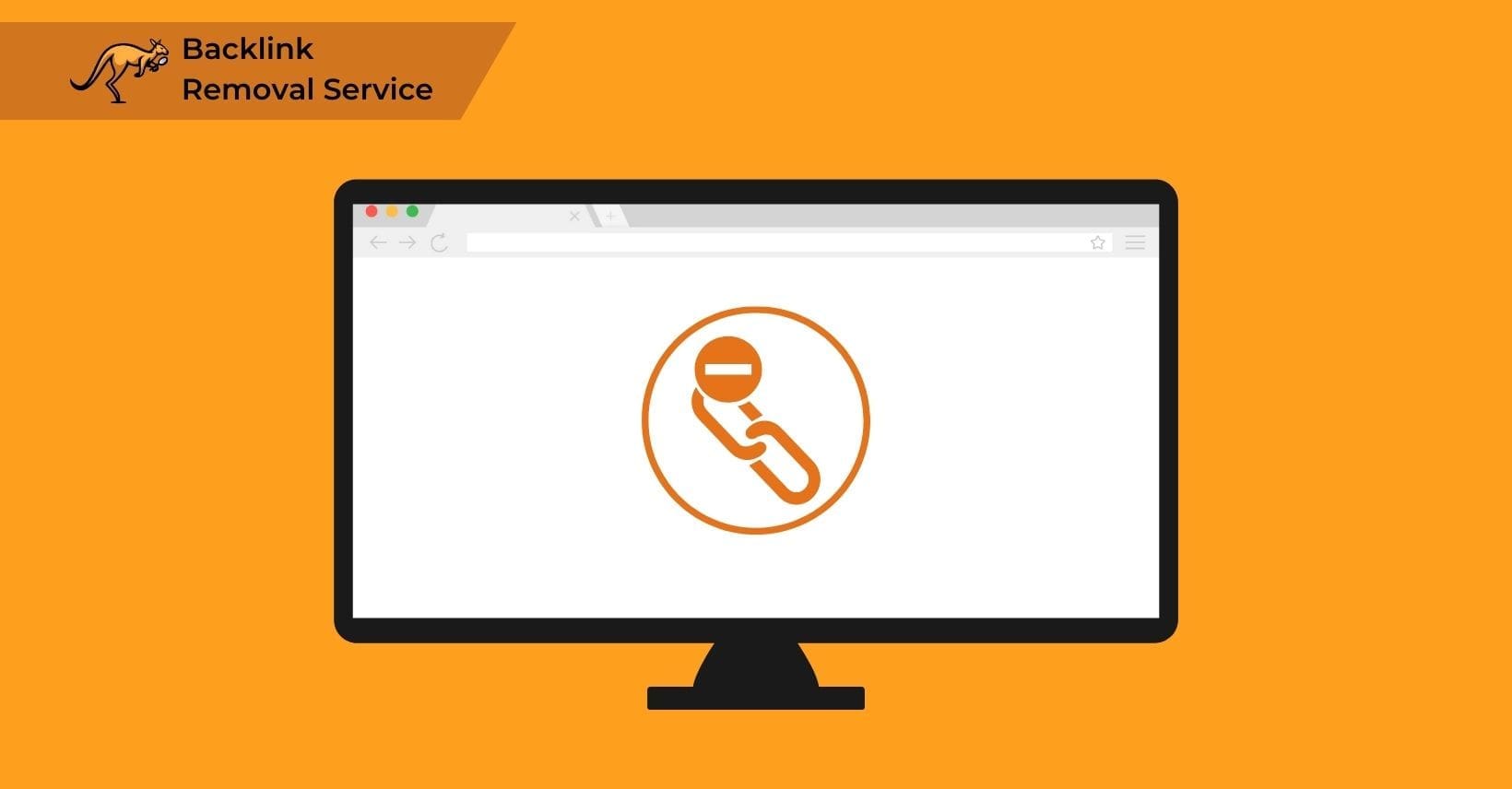Building links is the core of any business’s SEO efforts, and having a strong link-building strategy is vital. However, it’s not just the strategy that matters – the best link building tools for SEO combine powerful analytics with outreach capabilities that streamline your entire process.
Proper link-building requires a carefully chosen arsenal of link-building tools. Constructing link-building campaigns from scratch can be challenging, especially if you’re new to SEO.
This complexity can make it harder to secure link-building opportunities quickly and reliably, impacting your search presence. The right link-building tool can make a huge difference in obtaining high-quality links. Free options like Google Alerts and the Disavow Link Tool provide basic functionality, while premium tools offer advanced features at various price points.
Let’s explore how to choose the best link-building tool for your situation.
How to Choose the Best Link Building Tool for Your Situation

For many small business owners, using third-party software can be daunting. Tools like Link Hunter and Linkody offer affordable link building solutions specifically designed for small businesses that need effective backlink management without enterprise-level complexity.
However, popular SEO tools are favored for a reason, which also applies to link-building tools. Some tools help with broken link building and refining your link profile. In contrast, others focus on removing unwanted referring domains and performing link analysis. All of these tools are useful.
What Suits Your Link-Building Campaigns?
Consider these tools for your link-building process, regardless of your business niche. Knowing how to pick useful tools from the many available is essential. Always consider your own needs first.
Every business handles SEO differently, from outreach campaigns to efforts that maximize referring domains. Tools like link analysis can work in various situations, such as tools for link tracking or finding good target keyword options.
However, tools designed to optimize blog content are only beneficial if your SEO involves a blog. Consider your business needs and use that as the basis for your tool selection.
The right tools streamline your link-building tasks, improve accuracy, and save time, enhancing your overall strategy.
Why Should Link Builders Use Software?
The right software can significantly expand your link-building capabilities. While some tools identify broken links, others help manage outreach campaigns or provide Google alerts when your brand is mentioned online.
Key reasons to use third-party software for SEO include:
Flexibility
SEO tools can often compensate for areas of SEO your business is struggling with, allowing you to focus on things that need to be done manually (such as building new web pages). In contrast, the software does the busy work.
This can be important in smaller companies, where each employee focusing on outreach is an employee who is not focusing on more urgent matters.
Variety
Most tools have particular ways of dealing with specific things, using unique systems with some key benefits over others.
This means you can often look at what a tool offers compared to others that do the same thing. A lot of SEO work is considered standard practice, so you can usually expect a lot of tools that focus on the same things.
For example, there are countless tools for simplifying outreach campaigns, meaning that you can look through dozens of them to find the one that best meets your needs.
Metrics
The software can gather and interpret metrics data much faster than humans, often across various metrics.
This includes metrics like Domain Authority, which were invented purely to fill a need. Domain Authority and Page Authority were created by Moz specifically for their tools, providing a niche but accurate understanding of how useful a link would be.
Access to more metrics—even those mostly used as a comparison point—can always help if you are trying to identify a particular piece of information.
Management
A lot of SEO tools are designed to help you manage something. Even if you already have a good handle on your SEO work, better management options can never hurt. They can often future-proof your SEO strategies against potential flaws.
Many of these tools are also compatible with one another, either through direct connection or by moving data from one to the other. This can allow you to build up a custom set of software that compensates for any weaknesses in your current SEO plan.
Management can throw many SEO strategies off, so simplifying things with the right software can often give your business the boost it needs to see greater success.
Automation
Automating tasks through software can be very useful, especially for small businesses. Well-chosen software allows employees to focus on more important tasks and reduces human error. These tools also help save money in the long term.
While many businesses don’t automate most of their SEO work, automated link building tools like BuzzStream and Respona can streamline outreach processes by handling email sequences and prospect management with minimal manual intervention.
Link Building Tools
Link-building software can be game-changers for boosting your website’s SEO performance. These software solutions help identify high-quality backlink opportunities, track your existing backlinks, and analyze competitor strategies through specialized platforms designed for comprehensive link management.. Using effective link-building tools allows you to streamline the process of finding relevant sites for backlinks and managing outreach campaigns. This saves time and ensures that your link-building efforts are strategic and impactful, improving your site’s authority and search engine ranking. Many renowned tools are available, each offering unique features to enhance your link-building strategy.
These are some of them:
BuzzStream is an excellent choice for improving your link-building outreach management efforts. Operating as a customer-management relationship platform, BuzzStream simplifies the process of finding new link-building prospects, tracking email communications, and managing relationships with potential link partners..
Its straightforward operation is one of BuzzStream’s biggest advantages for your link-building campaign. It is not a complex tool for specific outreach campaign types but a link-building management system.
BuzzStream allows you to segment your link-building prospects, organize entire outreach campaigns, and keep your team synchronized to ensure no link-building efforts overlap.
This can be invaluable for a range of reasons. Not only can you tell which prospects you have already contacted, but you can also see who has rejected previous requests or which employees have reached out to particular site owners.
Not only does this save a lot of time and prevent you from wasting your effort, but it can also work in any industry and for any kind of link growth campaign. At around $24 per month for the basic plan after the 14-day free trial, it is an easy piece of software to include as a core part of your business.
BuzzSumo
BuzzSumo is a general content marketing platform that complements link-building tools. It allows you to perform important content analysis and research potential link prospects.
The discovery and research tools can work very well for uncovering useful content ideas, and you can also identify influencers and websites that may be great for link placements. This can help you open your business to even more link outreach options.
The Brand Mentions tool is a core part of the platform. It monitors the internet for situations where your business is mentioned. This is a simple but powerful tool for finding sites that have referenced your business, giving you some favorable places to add links.
While it does not have the same outreach features as a dedicated outreach platform, BuzzSumo works extremely well within its niche. When used alongside other software, it can become a core part of uncovering new link opportunities and ways to boost your SEO.
At almost $99 a month, BuzzSumo can be costly for a new business but can scale up to work well for companies of any size.
Link Hunter
As the name might suggest, Link Hunter is all about finding backlinks quickly. Mostly meant for individual users and small businesses, Link Hunter combines an easy-to-use design and great functionality to provide something basic but very effective.
While it is meant for a smaller scale than many other tools, Link Hunter can still be an excellent dedicated link-building tool.
The platform can automatically find hundreds of websites related to specific niches you input, allowing you to see a wide range of link-building opportunities with almost no delay.
From there, you can break down each site’s authority and preview each site within Link Hunter to avoid viruses or excessive open tabs.
You can even email the site’s owner through the platform itself since Link Hunter automatically finds the contact email for that site.
If email is not an option, Link Hunter will let you fill out a contact form if one is available.
At $49 per month, Link Hunter is a great option if you need some of the best link-building tools.
While more expensive than other link-building tools, it is a great and straightforward way to find new link prospects on your terms.
SE Ranking
SE Ranking operates as an all-in-one SEO platform, providing a range of built-in link-building tools and SEO features that can make it a core part of any link-building campaign.
For backlink work, you can use tools like the Backlink Checker to analyze a competitor’s link profile or break down the SEO metrics behind particular sites you want to target.
This information can be incredibly useful for finding new link-building opportunities, making SE Ranking ideal for link analysis.
The backlink gap tool allows you to identify your weaknesses compared to competitors. At the same time, the link prospecting options help you identify new link sources that your rivals may have overlooked.
You can even track your existing backlinks to get updated on any changes, including those that break your older links or cause drops in SEO potential.
Beyond that, you have various other link-building tools and SEO options to help with your general SEO performance.
A flexible pricing plan means that SE Ranking can quickly become one of the best link-building tools in most businesses’ arsenals, especially with a 14-day free trial to let you learn the platform.
Hunter
Hunter is a tool designed specifically to find contact information. It scans websites to track down email addresses in seconds. Emails are automatically verified and checked to ensure they are current and correct, making incorrect contact details rare.
While it might be one of the simpler tools on this list, Hunter is perfect for any SEO strategy that requires contacting many different site owners over a long period.
Being able to scour their sites for contact info so quickly can dramatically cut down the manual searching you must do.
The Hunter browser extension goes further, allowing you to automatically select email addresses as you review your prospects.
With a free plan that allows up to 25 monthly searches, Hunter can be a great free link-building tool for smaller businesses. The paid plans start at around $49 monthly if you need more.
Snov.io
Snov.io is a link building CRM solution over 130,000 companies have used in the past, including a range of major organizations still at the top of their field today, offering specialized features for managing prospect relationships throughout the link acquisition process..
While it was originally built for sales teams, it doubles as a great set of link-building tools.
The sales tools include email finders for identifying content information, website data collection options, and even a LinkedIn prospector for finding a business owner’s LinkedIn account.
The email verifier also really helps. It lets you verify and validate each contact before you send an email. This is meant to reduce bounce rates but can also help you identify the right link to contact them.
One of the more notable features is the Email Warm Ups option, which tries to help you build better emails. This is meant to prevent mass-produced prospecting emails from being lost in spam or junk folders.
If you are planning link-building outreach campaigns, this is one of the best link-building tools for keeping your communication clear.
The email drip system can even automate further outreach, creating personalized follow-ups for each email.
With a limited free plan and various paid plan options, Snov.io can be an excellent link-building tool for various forms of link campaigns.
Mailfloss
Mailfloss is another tool for validating email addresses. It focuses on removing invalid or no-longer-used emails to ensure you are not emailing the wrong people and places.
Bouncing emails can impact your deliverability rate, which tends to help keep your emails out of users’ spam folders.
Optimizing your emails with a tool like this can help you approach outreach more effectively and reduce the chance of having your emails buried in junk mail.
At only $17 per month (not counting the 7-day free trial), it is easy to integrate Mailfloss into your existing link-building tool collection.
While it focuses on a specific task, it does it very well, offering extra protection from accidental email bounces.
Brand24
Brand24 is a monitoring tool for various social media platforms. Rather than managing your social platforms, it allows you 24-hour coverage of when and where your brand name is mentioned, picking up brand mentions across almost any platform online.
From news stories and podcasts to social posts and YouTube videos, this link-building tool is meant to point out sites where you have been mentioned favorably, letting you find guest post opportunities or places to insert a paid link of your own.
Brand24 also doubles as a tool for tracking the public’s sentiments about your brand, letting you quickly review any potential positive or negative trends that might appear due to something your brand has done.
At $49 annually, Brand24 is very affordable for almost any business that wants it. The free trial makes learning how the platform works easy before committing to a year of using it.
Mangools
Mangools is a beginner SEO tool kit meant to help with your early link-building efforts. The platform provides various link-building tool options to help businesses kickstart their SEO, offering a nice suite of starter tools from which all businesses can benefit.
While meant for newcomers, Mangools is not trimmed down and simplified. Many of the platform’s tools can become great options for a business of any size, with LinkMiner helping with prospecting. At the same time, SiteProfiler analyses potential link placement options.
The SERPChecker is one of the more comprehensive tools included in the toolkit. It analyzes search result pages to find relevant target keywords.
This is mostly used to pick out high-authority sites and identify potential avenues for further outreach.
After the 10-day free trial, Mangools costs around $29 per month—far cheaper than many tools in the same niche.
Linkody
Linkody is a simplified backlink tracker that makes it easy to examine your existing backlinks. It helps you identify potential areas for improvement while monitoring your existing links.
Tracking backlinks can be very important, and many link builders underestimate how major a small change can be.
Even one small alteration to a keyword can be enough to tank the link’s overall value, and many site owners will change things without thinking about this.
Beyond that, Linkody is also useful if you want to analyze link profiles properly against a range of key metrics or to find and deal with links damaging your SEO.
This is in addition to several other useful features, which can be important for link-building campaigns at various scales.
Linkody might seem simple at first, but it provides a wide range of tools and ways to use the information you gather.
Linkody is an extremely cheap link-building tool that offers the same benefits as far more expensive options. It costs less than $12 monthly and comes with a 30-day free trial.
Majestic SEO
Majestic SEO is an incredibly popular analytical tool for link building. Majestic SEO uses a specialized link intelligence database that crawls the Internet for maps of useful linking options, providing detailed metrics that help evaluate the quality and relevance of potential backlinks..
While the free plan offers only a limited number of features, Majestic provides a massive amount of page and link data that you can use to identify opportunities for high-quality links.
Beyond that, the Trust Flow and Citation Flow systems ensure you get a full breakdown of a site’s quality before contacting it.
This makes Majestic great for finding high-quality backlinks on high-quality sites and allows you to seek out link options in areas you would otherwise never have considered.
Majestic’s greatest strength is the sheer amount of data it can provide, making it a staple of many professional SEO efforts.
With multiple pricing options to suit each situation, it can be a great source of important metrics and valuable link-related data.
Available for around $42 per month, Majestic is a tool that can benefit businesses most when they are struggling to improve their link profile or need a way to separate low-quality links from high-quality prospects.
Respona
Respona is a Google-integrated outreach platform designed to help users launch their email campaigns.
While this is not specific to link-building and can be used for any reason, Respona has much potential as a tool.
This integration with other platforms (from Google to a range of major link-building tools like Semrush) allows Respona to pull metrics from major sources and streamline your overall prospecting.
The email finder can also quickly strip out contact information for you to use.
The structure of Respona makes it easy to automatically identify, pursue, and monitor different outreach campaign options without using the same copy-and-pasted emails every time.
It even provides email health reports, letting you see whether or not your emails are ending up in spam folders.
Respona offers a 7-day free trial, starting at around $99 per month for the entire suite of tools. Custom plans are also available for specific situations, giving users more flexibility overall.
Ahrefs
Ahrefs is one of the best-known tools on the market. It offers useful and surprisingly versatile features, from keyword research and rank-tracking options to specialized tools for link building.
Most link builders will encounter it at some point, especially given the range of features it can provide. It is a completely free addition to your link-building tool selection.
For example, the broken backlink checker lets you detect broken links (both inbound and outbound) on your site.
This not only lets you fix broken links going to other sites but also shows you which broken links to your site need fixing or correcting.
You can also use the broken backlink checker on other people’s sites, which will help you find link-building opportunities on sites your competitors have forgotten about.
This makes it both an “offensive” and “defensive” SEO tool, making it a great addition to your current SEO plans.
This checker can also run monthly, weekly, or daily craws to check your site, and you can export the data to a CSV file for easy future use.
While the free plan does not give you access to the results, it can still be good enough for link builders at small or new online businesses.
The cheapest non-free plan is about $99 a month, and it scales up as you add more features. A yearly plan provides you with two free months.
Sitechecker
Sitechecker offers two major tools worth considering if you are looking into link-building campaigns: the Backlinks Generator and the Backlink Analysis tool.
These allow you to monitor the number and quality of backlinks from any site, including competitors.
The Backlinks Generator automatically builds backlinks from analyzer sites, allowing you to jump-start link-building campaigns with many well-chosen backlinks.
This tool even tells you its expected impact on your position in search rankings, something not many other tools do.
The Backlink Analysis option allows for in-depth analysis of backlinks across different periods.
This can include competitors’ link-building strategies, allowing you to find the best method for your particular situation in the context of other businesses trying to take your spot.
This tool’s simple interface allows you to easily break down important URLs, many offering link-building prospects or other significant meanings to your business.
This makes Sitechecker perfect for creating a strategy based on hard data rather than just guesses.
The cheapest plan starts at $49 per month (or less annually), and you can take advantage of the 7-day free trial to get a headstart on your SEO.
MozBar
MozBar is a Chrome extension (a completely free extension, no less) meant entirely for backlink research and gathering important metrics related to your link choices.
As an extension, it can be left on for as long as needed, automatically checking each page you visit.
The free version is limited but provides important metrics like Domain Authority and Page Authority, which measure a site’s impact on search results.
The top bar measures both metrics (separately) from 0 to 100, letting you see the site’s total value at a glance. How you use this information depends on your link-building strategy, but having an extra measuring stick never hurts.
MozBar also contains a Link Explorer that can break down the analytics involved in link research, helping you understand what you need to outrank any competing sites.
The free version of MozBar is good for small-scale use but offers limited features. For more information, there is a 30-day free trial, followed by a minimum monthly cost of $99 (or more for higher tiers).
Whitespark
Whites Whitespark is a citation finder (meaning citations like mentions of your name, address, etc.) that tracks the places where your site has been mentioned, allowing you to identify potential new local link-building prospects specifically tailored for businesses targeting geographic areas..
This citation finder is most useful for tracking down directories that allow you to submit a site to them.
These can be a small but useful part of a link-building strategy. Whitespark makes them easier by using an automated checking system.
Whitespark is another tool focusing mostly on a single goal, it can still be a great way to identify websites discussing your site or brand. From there, you can develop a link-building strategy that secures them as a backlink.
The free Whitespark only allows you to create one campaign, with three searches daily and restricted citation sources.
The lowest tier, at around $39 per month, increases that number significantly, giving you a 20-search-per-day limit and five campaigns.
Ubersuggest
Ubersuggest is a keyword research tool that provides many keyword suggestions and relevant metrics like cost-per-click and search volume.
While the tool’s operation is simple, Ubersuggest is a great place to quickly gather important keyword research data.
It cannot only provide you with important keyword suggestions for link prospecting but can also be used repeatedly as needed.
The backlink checker also helps with quick backlink analysis, saving you from managing things like broken link building entirely by yourself.
While it might be a limited link-building tool compared to some software suites, Ubersuggest does a few simple jobs incredibly well.
After a one-week free trial, Ubersuggest costs about $29. It has additional tiers that can be scaled up to accommodate larger businesses and/or companies with multiple websites.
However, even the cheapest version can be incredibly reliable as a basic tool in your SEO arsenal.
Google Alerts
Google Alerts offers an easy way to track brand mentions, notifying you whenever your business is mentioned on a website that Google has crawled.
Since it is tied directly to Google, you can expect fast checking and response times rather than being limited by the platform’s systems.
As one of the many free link-building tools offered by Google, this can be a great option for building links on new platforms. Combined with other outreach tools, you can easily perform link outreach and track when sites link to or reference your brand.
Disavow Link Tool
Another simple Google tool, the Disavow Link Tool, lets you tell Google to ignore particular links you are returning to your site.
This could be low-quality links from link farms and spam sites, lost links pointing to the wrong page, or anything else damaging your SEO.
When site owners acquire links, many do not realize that they have some control over whether to keep them. This tool makes it easy to do this.
If you audit your links, you may want to clean some poor-quality backlinks from your link profile. This tool lets you tell Google that particular links “don’t count,” preventing you from suffering penalties you would otherwise struggle to eliminate.
Again, this is completely free, although applying the changes can take a while. You must send your list of disavowed links as a .txt file, so it can seem confusing the first time you use it.
SEO Spyglass
SEO Spyglass, from the SEO PowerSuite, is a backlink tool that analyzes a range of backlink attributes to sort them cleanly and efficiently.
This includes link context details and backlink profile information, from simple things like dofollow/nofollow to the individual strength of specific links. As a bulk analysis tool, it can also compare linking domains as needed.
If you care a lot about your link profile or want to maximize the impact a few more links will have on your SEO, this tool can be a great option.
SEO Spyglass gives you a lot of data to work with and contextual information based on their attributes.
Like many other research tools, SEO Spyglass can’t fix your SEO alone. However, it can be perfect for managing SEO metrics and better understanding your performance when used alongside the right tools.
The free version of SEO Spyglass allows a limit of 1,100 links per website, with Professional bumping this up to 250,000. For most businesses, free should be enough – if not, you can get Professional for $99 per year or Enterprise for $199 per year.
URL Profiler
URL Profiler is a simple tool designed to break down a range of link metrics and give you a single platform to explore your backlink profile in more detail. As a fairly simple tool, it is best used to understand your current link effectiveness.
URL Profiler’s report generation features allow you to turn the link metrics you gather into reports, quickly comparing specific data sets while pinpointing weak points in your SEO and link-building attempts.
You can also connect the platform to tools like Majestic SEO and Ahrefs to quickly create a proper backlink profile.
Available for as little as $30 per month, URL Profiler also has Pro and Agency tiers that scale up its services as an SEO tool. However, for regular businesses, the normal tier should be enough for quite a while.
LinkResearchTools
LinkResearchTools provides tools for managing SEO and building links: creating backlink reports, performing link audits, and finding more links through your competitors’ link profiles, with specialized features for backlink analysis that identify toxic links and evaluate link quality..
The platform uses a unique metric, Link Detox Risk, to identify links with a toxic or risky element.
This allows you to keep your backlink profile clean more effectively, ignoring any links that could harm your SEO.
This also contains the Link Simulator, which judges how useful a link is, and Link Recovery, which can automatically generate redirect instructions for lost links.
A paid trial of around $17 for seven days provides easy access to the basic tool. However, the cheapest plan after that (Superhero Small) costs $499 monthly, making this tool only for the most serious SEO agencies and large-scale businesses.
Which Link Building Tools Are Best?
There are no “best” tools for link building. While some are better than others, it depends on your needs and how you want to approach the current campaign or problem.
Many of the tools listed above work well alongside others, and some can even connect to share data. Often, a single link-building tool is only part of the whole—not the solution itself.
In practical terms, the best tools for link building are the ones that suit your business best. This means things like budgetary limits, the tool’s focus, how accessible it is, and what kind of information you are expected to provide it with.
Always use common sense when choosing link-building and SEO tools, and do not let the pressure get to you. Many of these tools are highly flexible, and you can always choose a different software option if the first does not work as expected.






